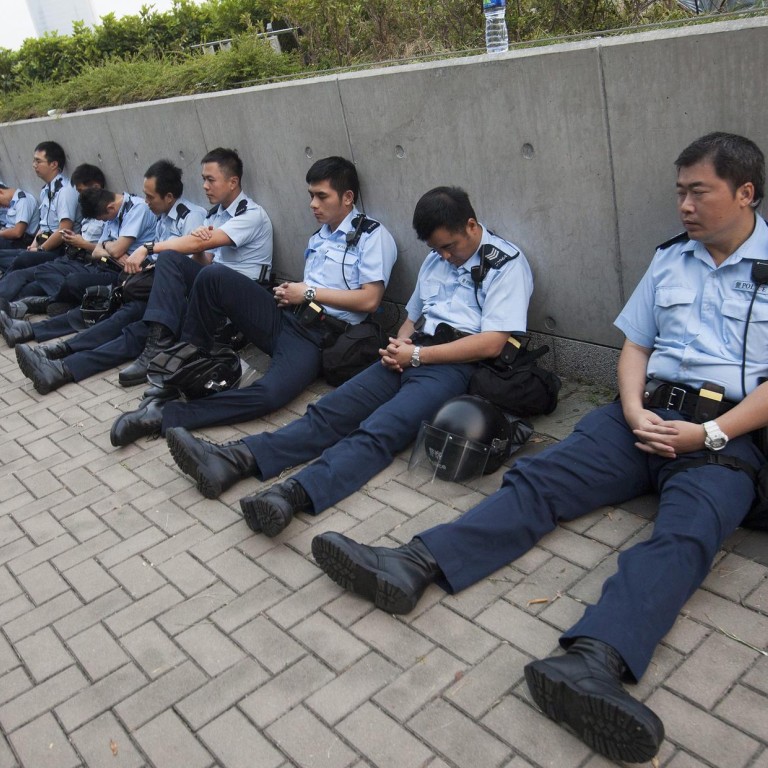
Umbrella Movement is frittering away its gains
Readers may recall that this, according to Michael DeGolyer, the professor of government and international studies at Hong Kong Baptist University, was the most likely of the strategies to be employed by the mainland in dealing with the "Umbrella Movement".
This envisages the slow strangulation of the movement using a divide and conquer strategy which inflicts painful but easily reversible economic damage in incremental measures as a means of pressurising Hong Kong people to turn against the students. Stopping mainland tours was the first step in this process.
The aim is to make the students appear extreme, isolated and uncaring about the rest of Hong Kong and thus to make it easier for the authorities to eventually crack down on them without attracting a great wave of sympathy as occurred when the police first used tear gas.
As recent events have indicated this is pretty much how this is playing out. However, the students increased the pressure on themselves by blocking roads in Mong Kok, Causeway Bay, Admiralty and Central for longer than was wise. This has lost them a lot of support from people who sympathise with their aims. Increased police aggression in removing barricades is now supported by more of the public.
However, the thuggish beating administered by the police to handcuffed Civic Party member Ken Tsang Kin-chiu was appalling. It was also strategically inept since it obviously works against the government and the police and to the advantage of the protesters. Fortunately nobody has been killed so far. Senior police officers say privately this demonstration has taken a toll on the police and say many of them are angry with the demonstrators. There is obviously considerable support for universal suffrage in Hong Kong. But the students have alienated many of these supporters with many small business owners, restaurant owners and taxi drivers losing money.
The sad thing for those that support the students' aims is that last week they had plenty of public support and could have stopped, having made their point while also warning they would be back if no progress was made in terms of finding a way of broadening the choice of candidates for the 2017 chief executive election. However, it appears to that the students are frittering away their gains and playing into the hands of the anaconda strategy.
The government hasn't been as helpless as it makes out. It took them almost a week to work out how to hold talks with the students and then abandoned them on the flimsiest of excuses. Yesterday it talked of renewing attempts at talks "in a few days". It looks as if the government is trying to spin this out while public frustration with the students rises.
doesn't know who is calling the shots, the Hong Kong or the mainland government. Leadership on the government's side has been non-existent. It's been reactive and offered nothing in the way of proposals for at least a temporary resolution. This doesn't bode well for Hong Kong after the demonstrators go home.
Hong Kong is not going to be the same after this. People have witnessed what the students have achieved in terms of sending a message and there is no shortage of other issues that Hong Kong people feel strongly about. The conundrum is that we need the right sort of leaders to lead Hong Kong through this difficult period. But under the present arrangements those kinds of leaders will never be elected nor have the requisite legitimacy in the eyes of the people to govern.

